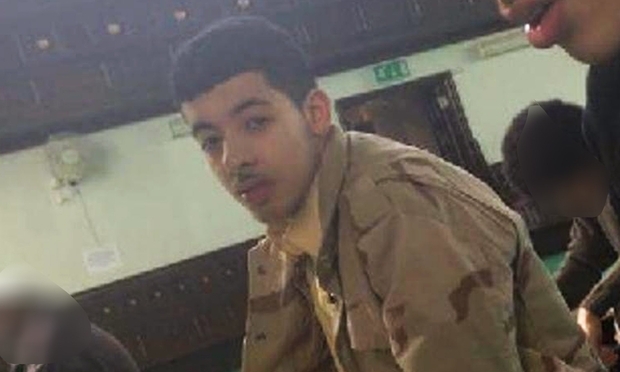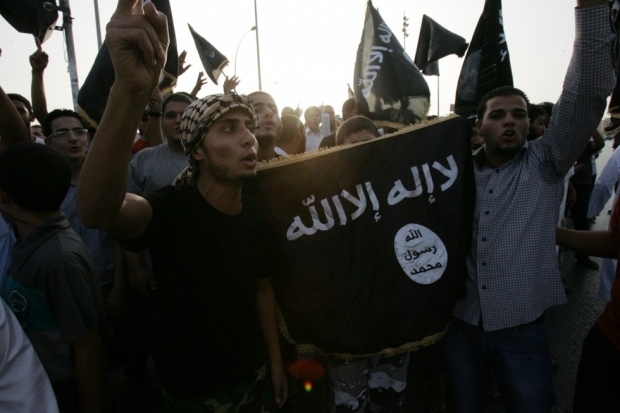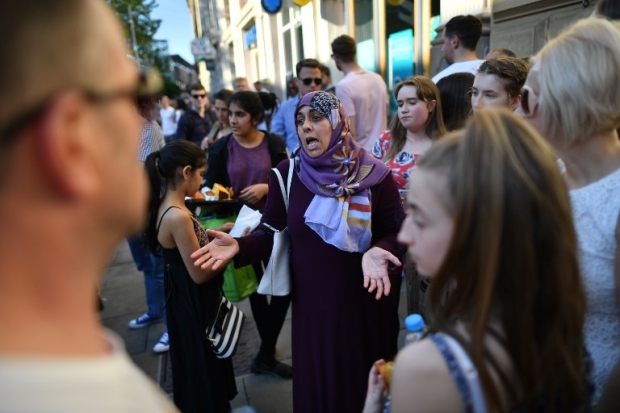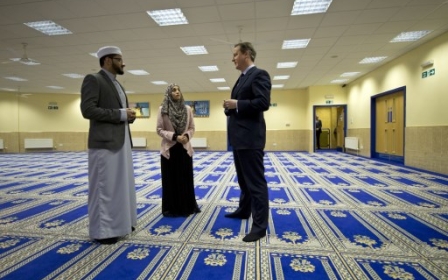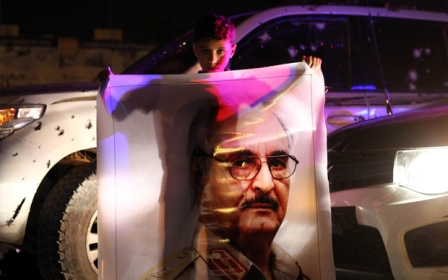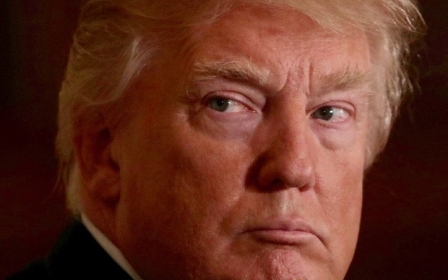This is how to end Islamic State terror - and stop British foreign policy blowback
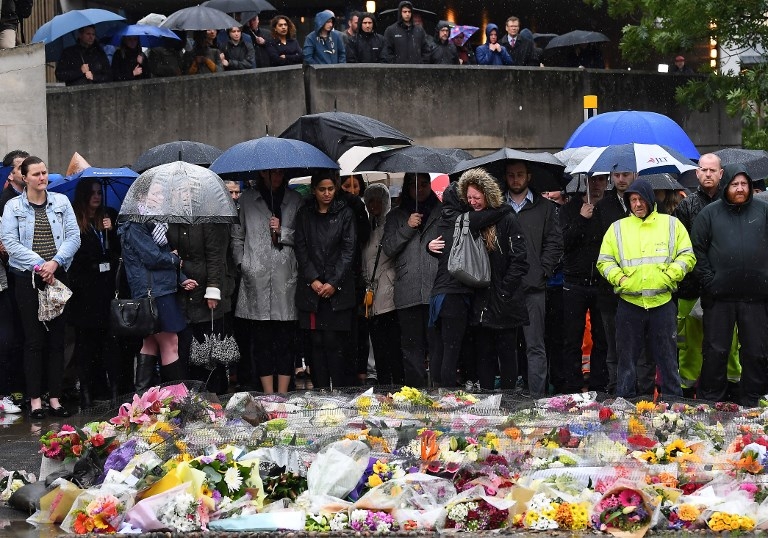
Theresa May is right. Enough is enough.
A difficult and embarrassing conversation needs to be had about the fact that there is too much tolerance of extremism – by the British state.
Whitehall’s disastrous policy of partnering with regimes in the Middle East which – according to reports and a briefing drawn from open sources that I co-authored with Mark Curtis - sponsor the Islamic State (IS) group, has created a situation that has directly increased the threat of domestic violent extremism.
But now the problem is here, it is not enough simply to point fingers. All of us need to work together to solve it.
When war comes home
About 850 British citizens have travelled to Syria, Iraq and Libya over the last few years to fight with a variety groups, including jihadist, against the likes of Gaddafi and Assad. About half arrived back in Britain this February.
Others have been coming back intermittently before then.
Now hundreds of al-Qaeda, IS and Libyan Islamic Fighting Group-groomed jihadists are roaming the streets of Britain. Many have simply carried on with their lives. Others are recruiting and radicalising in our midst.
This is why we have had the unprecedented circumstance of three horrifying terrorist atrocities on British soil within just three months, under Theresa May’s watch.
As UK foreign policy expert Mark Curtis and I show in our new briefing published on the morning that London was attacked, Britain's security services actively colluded in this process. They established an "open door" between UK and jihad theatres in the Middle East, ensuring that our own police forces were unable to prevent these British citizens from joining various rebel uprisings abroad.
A very British fight
And yet we also know that British military assistance ended up being supplied to the very jihadist groups that radicalised these British citizens in theatres like Syria and Libya, alongside regimes whom we call our allies – Saudi Arabia, Qatar, the United Arab Emirates, and Turkey to name just four.
Western and regional intelligence sources overwhelmingly have confirmed that the bulk of military and logistical support to rebels in Syria and Libya, for instance, went to Islamist groups with ties to al-Qaeda and the Islamic State (IS).
The document went on to describe the rise of IS as a strategic opportunity for the US to reshape the region: “With all of its tragic aspects, the advance of ISIL through Iraq gives the US Government an opportunity to change the way it deals with the chaotic security situation in North Africa and the Middle East.”
In Libya, Britain’s partnership with the Libyan Islamic Fighting Group (LIFG), which some have argued was for a time affiliated with al-Qaeda, empowered a network many of whose members had been arriving back from fighting US troops alongside al-Qaeda in Iraq. The very same members ended up being enrolled in the anti-Gaddafi rebellion.
In Syria, in alliance with the Gulf states, British support went to al-Nusra Front, the “proscribed group considered to be al-Qaeda in Syria” many of whose followers went on to join IS. Al-Nusra has since attempted to rehabilitate its image by publicly disassociating from al-Qaeda - a move which, however, was strongly supported by al-Qaeda largely for PR purposes.
Afraid to prosecute
The British connection was exposed when in 2015 the trial of Swedish national Bherlin Gildo collapsed. Gildo had attempted to return from his Syrian adventures through London, where he was arrested and charged with attending an extremist training camp in Syria, receiving weapons training and possessing information on extremists.
The British trial fell apart when Gildo’s defence team pointed out that Gildo had joined al-Nusra , which had received British government support through a CIA-MI6 al-Qaeda-facilitated arms “rat-line” from Libya to Syria.
The upshot of this is unthinkable: the authorities are unwilling and incapable of prosecuting jihadists in Britain because the British state has been allied with them abroad.
In 2014, I was told by Charles Shoebridge, a former British Army and Metropolitan Police counter-terrorism intelligence officer that the US and UK “through the covert work of MI6 and the CIA… played a key role in facilitating the flow of arms and jihadist fighters to Syria from such places as Libya, the Caucasus and Balkans, with the aim of militarily boosting those fighting Assad".
British authorities 'turned a blind eye to the travelling of its own jihadists to Syria, notwithstanding ample video etc. evidence of their crimes'
At the same time, British authorities “turned a blind eye to the travelling of its own jihadists to Syria, notwithstanding ample video etc. evidence of their crimes there,” said Shoebridge. He said that it was only around 2013, when IS turned against the West’s preferred rebels, and when MI5 realised there was a serious threat of “domestic terrorist blowback”, that UK authorities began “to take serious steps to tackle the flow of UK jihadists”.
So now we can guess at why the British government is paralysed in the face of the inflow of these jihadist fighters back into our country. The authorities are embarrassed over the role of our own security agencies in facilitating military and financial support to the very jihadist groups we claim to be fighting.
On May’s watch
The evidence is therefore incontrovertible. Britain’s foreign policy over the last six years at least, under the Tory government, has seen an acceleration of overt and covert military interventions across Iraq, Syria and Libya.
These interventions have massively augmented the capacity of violent Islamist groups to operate freely across all three countries. And by operating an "open door" policy for British citizens to join in these jihadist adventures, the British state has allowed this country to become a breeding ground for violent extremism.
No wonder that our underfunded police forces are overwhelmed. No wonder British security services cannot keep up with the influx of jihadist plots accelerating under their own noses.
Theresa May’s proposals to increase mass surveillance, reduce internet freedoms, unravel encryption, and increase custodial sentences would do literally nothing to address these fundamental factors that have dramatically undermined British national security.
The government's way forward
Instead of cosying up with terror sponsors, we need to review our relationships with these regimes, urgently. An independent public inquiry is required to unearth how these relationships have undermined our national security, stoked the threat of terrorism on British soil, and allowed IS to grow and fester.
We then need to use all diplomatic and economic mechanisms available to shut down these regimes’ incubation of Islamist terror, to begin starving IS out of existence.
We also need to overhaul our domestic counter-extremism strategy, Prevent, so it actually works in partnership with Muslim communities. That includes ensuring that the police have sufficient resources to do their job.
It also means that the work of our security services must be scrutinised to ensure that narrow foreign policy goals are not pursued to the detriment of public safety.
Only then will the authorities be freed up from the politicisation of intelligence that has prevented them from prosecuting British terrorists.
All this amounts to the very opposite of what May has done: sell $3.5bn worth of arms to an alleged state-sponsor of IS, Saudi Arabia, while reportedly covering up evidence that may be held by the British government of Saudi involvement in terror financing.
May has also resisted reasoned criticism of Prevent. She has ignored, for instance, the advice of David Anderson QC in his role as the government’s independent reviewer of terrorism legislation, to overhaul the Prevent strategy.
The way forward for Muslims
But Muslim communities should equally amplify their work to delegitimise IS and al-Qaeda ideology. In the aftermath of the last three terror attacks, we have seen that they are. But the urgency of the situation requires that we simply do more and more and more.
As violent extremists plot to kill us all, the government, the pro-Prevent lobby, and anti-Prevent activists, are busy cannibalising each other
This also means letting go of our absurd internal squabbles. As violent extremists plot to kill us all, the government, the pro-Prevent lobby, and anti-Prevent activists, are busy cannibalising each other.
Both the government and Muslim communities need to stop pussyfooting around and accept the urgency of working together to confront this scourge of violent extremism in a genuine partnership.
But whatever the failings of Prevent, the issue is that our mosques and madrasahs and religious institutions are not providing many of our young people with a sense of meaning, belonging and purpose which connects them with wider society. Nor are they informing them of the nuance, complexity and depth of our faith. And it is precisely within those gaps that groups like IS find their prey.
Simply standing on the side-lines and shouting the odds about Prevent’s failings is not going to cut it
This is not about blame. According to Charles Farr, former Home Office counter-terrorism czar and now chair of the Joint Intelligence Committee, “violent radicalisation in mosques or other religious institutions comprises no more than 1 percent or 2 percent of the total cases of radicalisation".
So the issue is not that our mosques are hot-beds of violent extremism: they are not. The issue is that our institutions can clearly do much more to enfranchise those most vulnerable to extremist recruitment in our communities.
No more Prevent blame games
For those who are critical of Prevent, like me, I say this: simply standing on the sidelines and shouting the odds about Prevent’s failings is not going to cut it. If you’re unwilling to work with government, then you need to bootstrap your own grassroots counter-extremism initiatives to build resilience in your community.
It doesn’t matter how much we think British state policy has contributed to the problem. The problem is still here, and growing, and we need to deal with it, together.
On the night that Londoners were attacked, I was at home with my family breaking our Ramadan fast. We were joined by our non-Muslim friends, who had wanted to share with us the experience.
In the midst of conversations about the Quran’s values of love, compassion and mercy, these evil bigots began rampaging across the streets of my town, murdering and slaying my neighbours, my brothers and sisters in humanity.
Each precious life that these murderous scum took, as the Quran says, is equivalent to all of humanity.
Instead of pointing fingers at each, the time is long passed to join forces once and for all to stamp out every form of tolerance for the IS scourge at all levels in Britain – in our security services, in Whitehall, in our communities, and beyond.
- Nafeez Ahmed PhD, is an investigative journalist, international security scholar and bestselling author who tracks what he calls the "crisis of civilization." He is a winner of the Project Censored Award for Outstanding Investigative Journalism for his Guardian reporting on the intersection of global ecological, energy and economic crises with regional geopolitics and conflicts. He has also written for The Independent, Sydney Morning Herald, The Age, The Scotsman, Foreign Policy, The Atlantic, Quartz, Prospect, New Statesman, Le Monde Diplomatique, New Internationalist. His work on the root causes and covert operations linked to international terrorism officially contributed to the 9/11 Commission and the 7/7 Coroner’s Inquest.
The views expressed in this article belong to the author and do not necessarily reflect the editorial policy of Middle East Eye.
Photo: Bystanders observe a minutes' silence at south-side of London Bridge in London on 6 June 2017, in memory of the victims of the 3 June attacks. (AFP)
Middle East Eye propose une couverture et une analyse indépendantes et incomparables du Moyen-Orient, de l’Afrique du Nord et d’autres régions du monde. Pour en savoir plus sur la reprise de ce contenu et les frais qui s’appliquent, veuillez remplir ce formulaire [en anglais]. Pour en savoir plus sur MEE, cliquez ici [en anglais].



